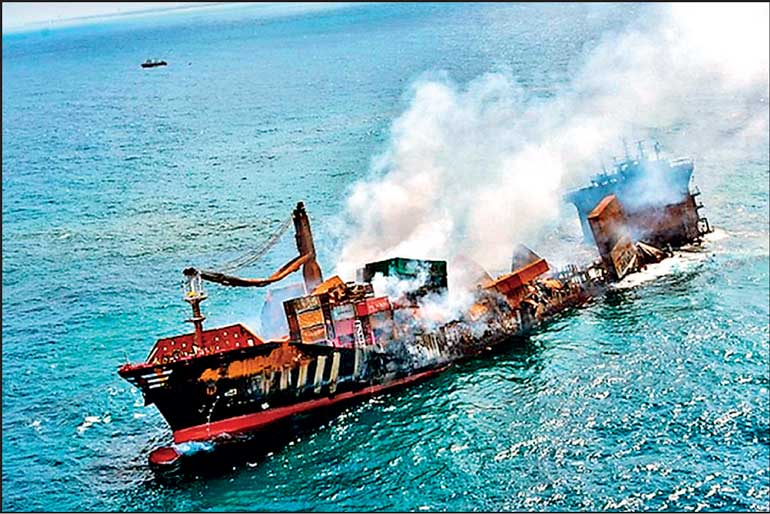Tuesday Feb 24, 2026
Tuesday Feb 24, 2026
Thursday, 10 August 2023 00:08 - - {{hitsCtrl.values.hits}}

The report by the Sectoral Oversight Committee on Environment, Natural Resources and Sustainable Development on the X-Press Pearl disaster and the compensation process has raised serious concerns about the actions of the Attorney General in relation to the case.
The committee in the report said it cannot comprehend the reasoning behind the Attorney General’s choice to engage in legal proceedings in Singapore instead of opting for Sri Lanka, which would have been more appropriate.
Furthermore, it was observed that Sri Lanka would have been the more appropriate venue, considering the substantial majority of witnesses pertinent to the case are located within the country.
The committee also highlighted significant concerns regarding the selection process of the chosen Law Firm by the Attorney General. Moreover, they questioned the basis and authorisation through which the Attorney General managed to secure Marine Environment Protection Authority’s approval for engaging a Litigation Funding Agency, all while disregarding the National Procurement Guidelines pertaining to services.
The committee noted that if Sri Lanka was chosen as the forum for litigating this issue, there would have been a significant reduction in legal expenses compared to engaging the chosen law firm, as the case would be overseen by the Attorney General’s Department itself.
“Further, no extra costs would be incurred by the Government of Sri Lanka for various other expenses that need to be borne including that airfares, internal travel costs, allowances, food and accommodation, other logistical costs, and etc. for the Government officials as well as for the witnesses who are expected to be present before the court in Singapore for an un-pre-determined period,” the reported noted.
The committee also included that the legal experts from MEPA emphasised during their testimony that these expenses would place additional strain on the national economy, which is already grappling with significant challenges amidst the ongoing economic crisis.
“In this type of case, the aggrieved party and the prosecuting agencies should adopt a more deliberative and transparent practice for initial decisions that are considered as a national matter rather than acting arbitrarily,” the report noted.